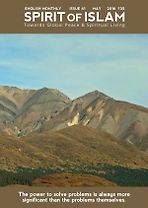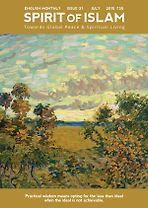Finally, he resorted to the study of Islam. And he was astonished to find that the teachings of Islam were still preserved in their original form. The Islamic personalities, far from being mythological
mythological characters, were genuinely historical figures. He writes:
In the Prophet of Islam there is nothing vague and shadowy, mythical or mysterious, as, for instance, in Zoroaster and Sri Krishna, or in
am aware, has ever ventured to reduce the Prophet of Islam either into a “solar myth” or into a “fairy tale.” Then he goes on to observe, “Oh, what a relief to find, after all, a truly historical prophet









